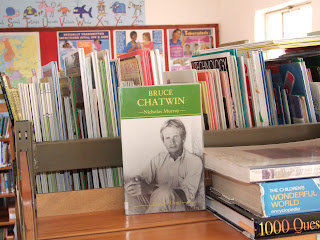One of the unexpected pleasures of the recent silly season was witnessing the emergence of Private Eye after all these years as a Leavisite organ. Its Literary Review section, written anonymously but probably by the ubiquitous scribbler D.J. Taylor, with whom Craig Raine in a letter to the current issue of the Eye ironically identifies himself ("I am a very very minor writer like D.J.Taylor"), took on a new book by the critic and novelist, Gabriel Josipovici, What Ever Happened to Modernism? The Eye could not be expected to endorse anything so un-English as the European avant-garde and Josipovici was accordingly sneered at for criticising the sacred cows of contemporary British fiction whilst writing fictions of his own which had not won any awards (seemingly the way one distinguishes merit ). But the review concluded that Leavis had pointed out a long time ago "the essential difference between Joyce and Shakespeare. Joyce, Leavis remarked, wrote to extend his technique; Shakespeare laboured under the pressure of something that had to be conveyed." So many non sequiturs are released from the bag by this that it is impossible to catch hold of any of them.
Over at The Literary Review, where Josipovici was equally unwelcome, John Sutherland took the predictably sarcastic line that the author had been let down by England and its indifference to Modernism. He complained about Josipovici's familiarity with European writers and critics, some of whom he appeared to read in their original languages which horrified Sutherland, described as Lord Northcliffe Professor Emeritus at UCL. In spite of that status, the "world class" professor emeritus described Josipovici as "not a man many of us can meet on level terms". That a leading academic could loudly boast of his ignorance in such a way speaks volumes.
Actually, Josipovici writes in a very engaging and lucid way, so much so that he had his knuckles rapped by Tom McCarthy in his Guardian review: "Adopting the vocabulary of the middlebrow in order to legitimise the vanguard merely robs it of what animates it most," observed McCarthy disdainfully. Caught thus between the populists and the snooty avant-gardists, and saddled with a massive non-controversy that the newspapers before his book's publication tried to whip up (his dismissal, actually more in sorrow than in anger, of the currently fashionable English novelists in a page or two towards the end of the book) Josipovici's argument has had to struggle to be heard.
It is an interesting one. Instead of the usual argument in defence of Modernism that involves bashing us over the head with someone (usually Ezra Pound) in order to reprimand us for being so insular and resistant in a way that can sometimes come to seem like our failure to toe a party line, Josipovici offers a persuasive and generous narrative of what he thinks modernism is about and why so much contemporary writing in Britain doesn't persuade him (and me). He has also upset the modernist fundamentalists by choosing as one example of proto-Modernism the poet Wordsworth. I thought it entirely appropriate in the context of his overall argument to do this and it is characteristic of his open and enquiring mind that he should seek more widely for his examples (though writers like Kafka and Proust and Woolf, Mann and Beckett, if not Joyce, are at the forefront of his mind). "He has much to teach us about the paradoxes of the freed imagination, that poisoned chalice passed on from Romanticism to Modernism, " he writes of Wordsworth.
For Josipovici, the essence of Modernism (and he reaches back to Cervantes to pinpoint its beginnings) is that it is "a response to the simplifications of the self and of life which Protestantism and the Enlightenment brought with them" and its hallmark is an awareness that, for the artist (painters and musicians being as much a part of his argument as writers) things can never be the same again. He quotes Beckett: "I speak of an art...weary of puny exploits, weary of pretending to be able, of being able, of doing a little better the same old thing, of going a little further along a dreary road." Or as Barthes put it: "to be modern is to know that which is not possible any more". Josipovici himself sees in Modernism something absent from so much lauded contemporary writing (though William Golding and Muriel Spark from an earlier period are allowed through his net), namely "neither illustration [Francis Bacon's dismissive term for too facile art] nor abstraction but the daily struggle of a dialogue with the world, without any assurance that what one will produce will have value because there is nothing already there against which to test it, but with the possibility always present that something new, something genuine, something surprising, will emerge."
I remain cool towards the football supporter's view of Modernism: we support our eleven lads and despise all eleven on the other side. But faced with the Private Eye canon I think I know which scarf I would wear if I had to. "Reading Barnes," Josipovici writes towards the end of the book, "like reading so many of the other English writers of his generation, Martin Amis, Ian McEwan, Blake Morrison, or a critic from an older generation who belongs with them, John Carey, leaves me feeling that I and the world have been made smaller and meaner...The irony which at first made one smile, the precision of language, which was at first so satisfying, the cynicism, which at first was used only to puncture pretension, in the end come to seem like a terrible constriction, a fear of opening oneself up to the world."

